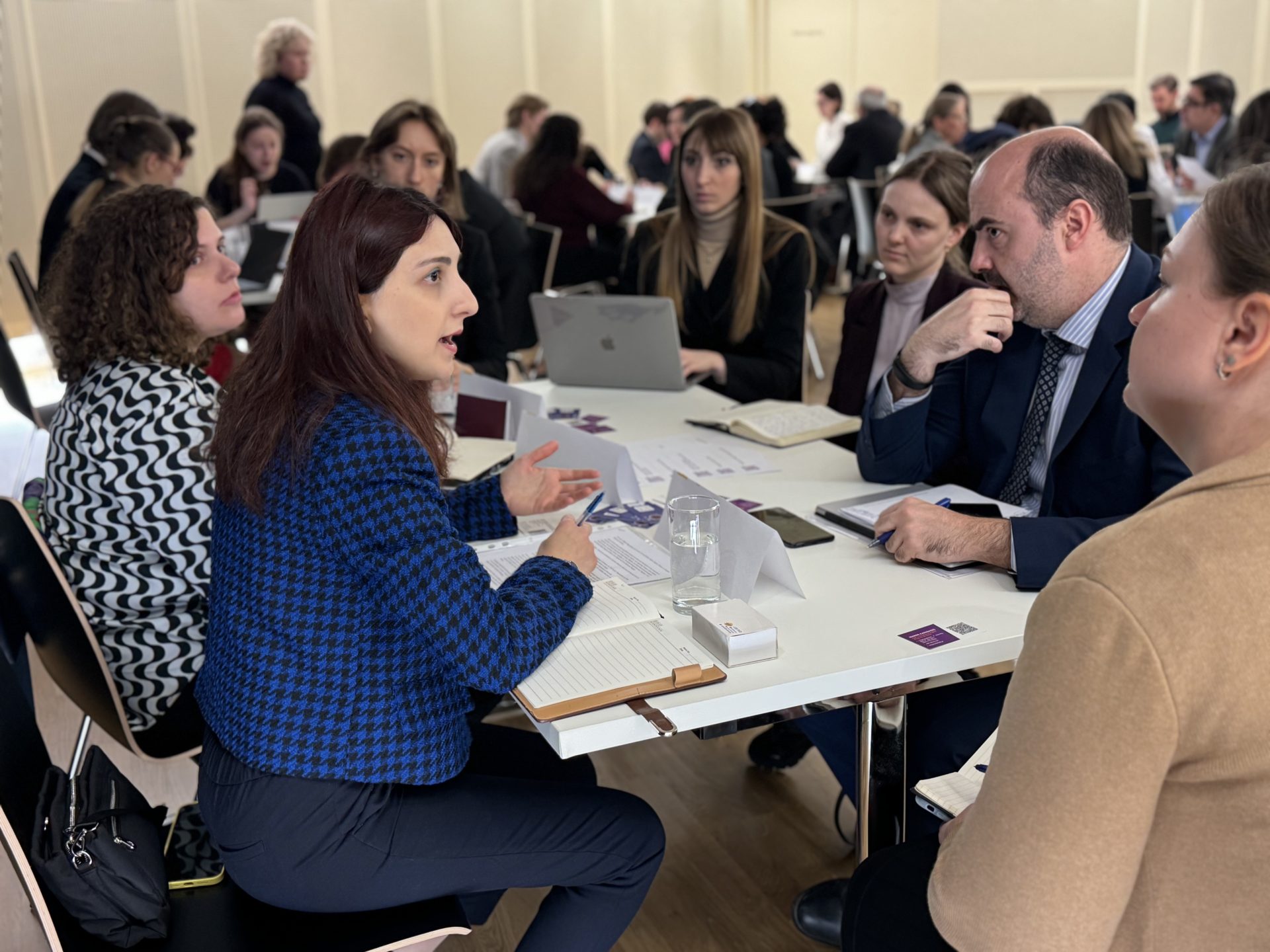From military conflicts to severe crackdowns against civil society, several of the countries across the OSCE region face a variety of daunting human rights challenges. That’s why exchanges like these are critical, so that states can be briefed directly, and receive perspectives and recommendations from human rights defenders working on the ground.
Nora Wehofsits, International Advocacy Officer, Human Rights House Foundation
This event brought together 20 civil society representatives from Armenia, Azerbaijan, Belarus, Georgia, Kazakhstan, Turkey, and Ukraine, and provided over 40 representatives of international delegations and missions to the OSCE with a series of one-on-one briefings on emerging and ongoing human rights trends, as well as recommendations to States.
The event was co-sponsored by the Permanent Delegations of Ireland, Norway, Sweden, Switzerland, and the United States to the OSCE and was co-funded by the European Union and the Ministry of Foreign Affairs of the Netherlands.
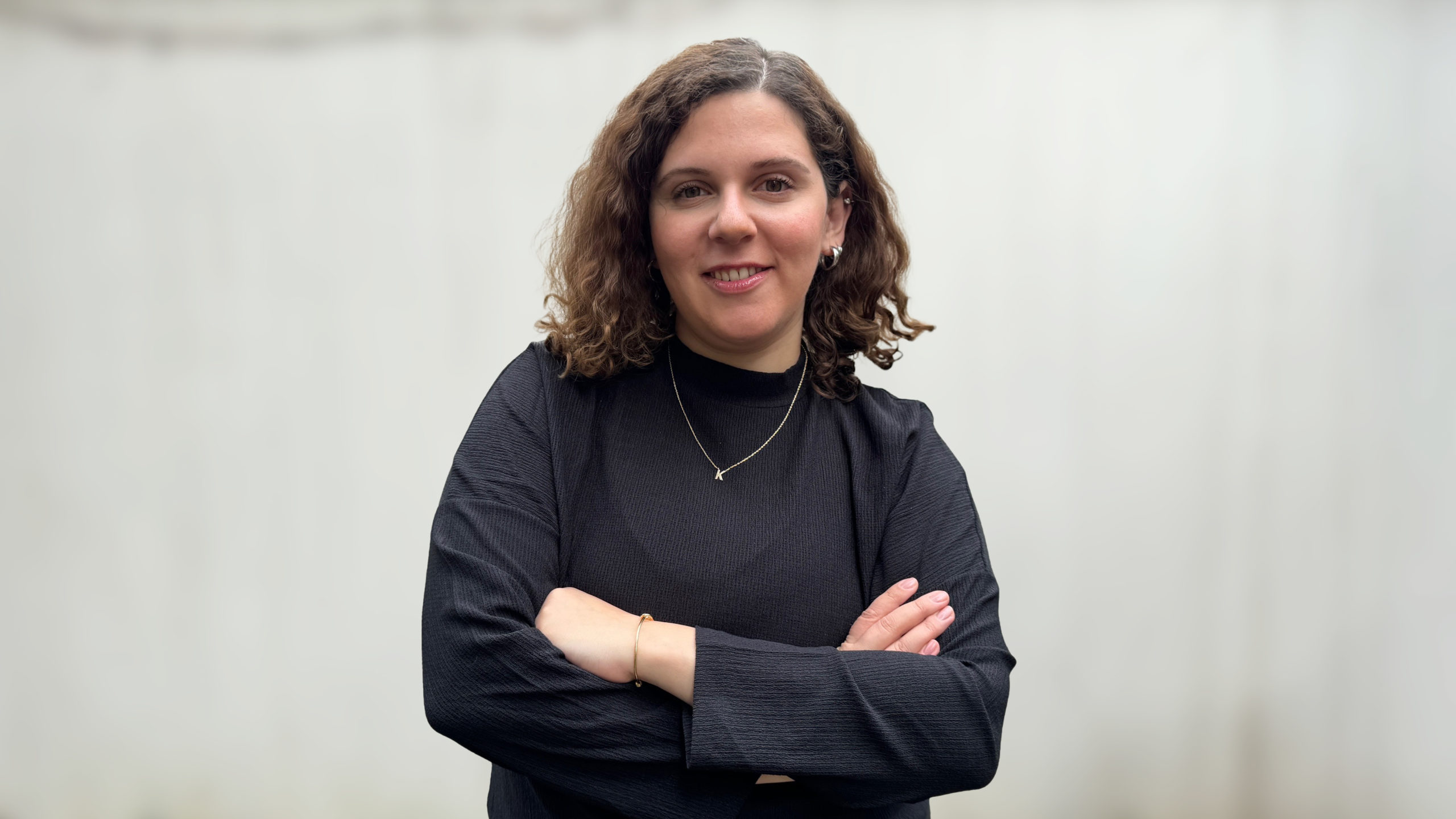
[We were given great feedback] that civil society in Georgia is very strong and EU candidate status for Georgia from last year was thanks to the active work of the civil society. It was heartwarming and motivating to hear that our efforts are seen and recognised.
Elene Janelidze, Human Rights House Tbilisi.
For Elene Janelidze from Human Rights House Tbilisi, this was not her first experience with a quickfire “speed-dating” style advocacy event [where participating delegates move tables with the civil society representatives from different countries every 15 minutes]. She has previously participated in the advocacy trip to the CoE in Strasbourg during the autumn session of the Parliamentary Assembly of the Council of Europe as a part of HRHF’s Advocacy Capacity Building Programme.
“I’ve previously had the chance to participate in similar format meetings in Strasbourg. Such a format is, of course, a challenge, as there is so much to say, but you have to be very brief. Previous experience was helpful because I already knew what was going to happen, how the diplomats would react, and that we would have specific questions from them.”
This time, together with her colleague, Mari Kapanadze from Georgian Democracy Initiative, Janelidze was invited to brief the delegates on the current situation with human rights and civil society developments in their country.
“I believe the meetings were successful and really useful because we were able to get our message across to diplomats representing so many countries. They were also prepared and knew what was going on in our country and asked for details on some specific issues. The diplomats also asked for our opinion on what can be done on the OSCE level to better support Georgian civil society and human rights in our country.”
“We shared some critical issues, including how civil society nowadays is affected by narratives that the Georgian government is using [against it]. We asked the diplomats to support civil society and human rights defenders in Georgia and to keep international pressure on the Georgian government. Because we know it works. And we believe it will help us to stay on the European path.”
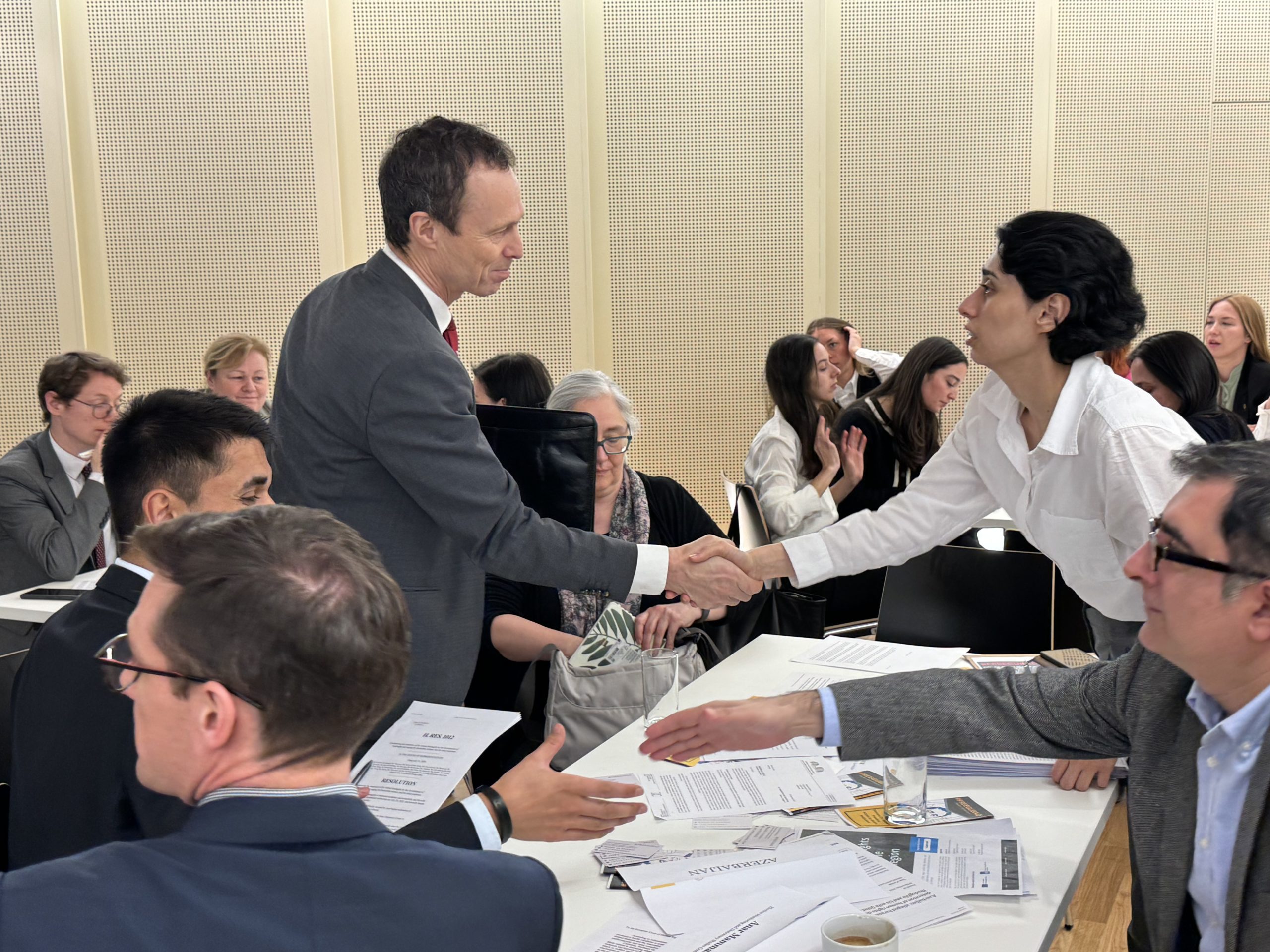
I definitely learned a lot today… We had this combination of information about concrete cases and [recommendations] about what we can do to assist, what kind of measures we have available. They might not always be as effective, but at least we can discuss what should be done.
Stein Paul Rosenberg, Counsellor, Permanent Mission of Norway to the OSCE.
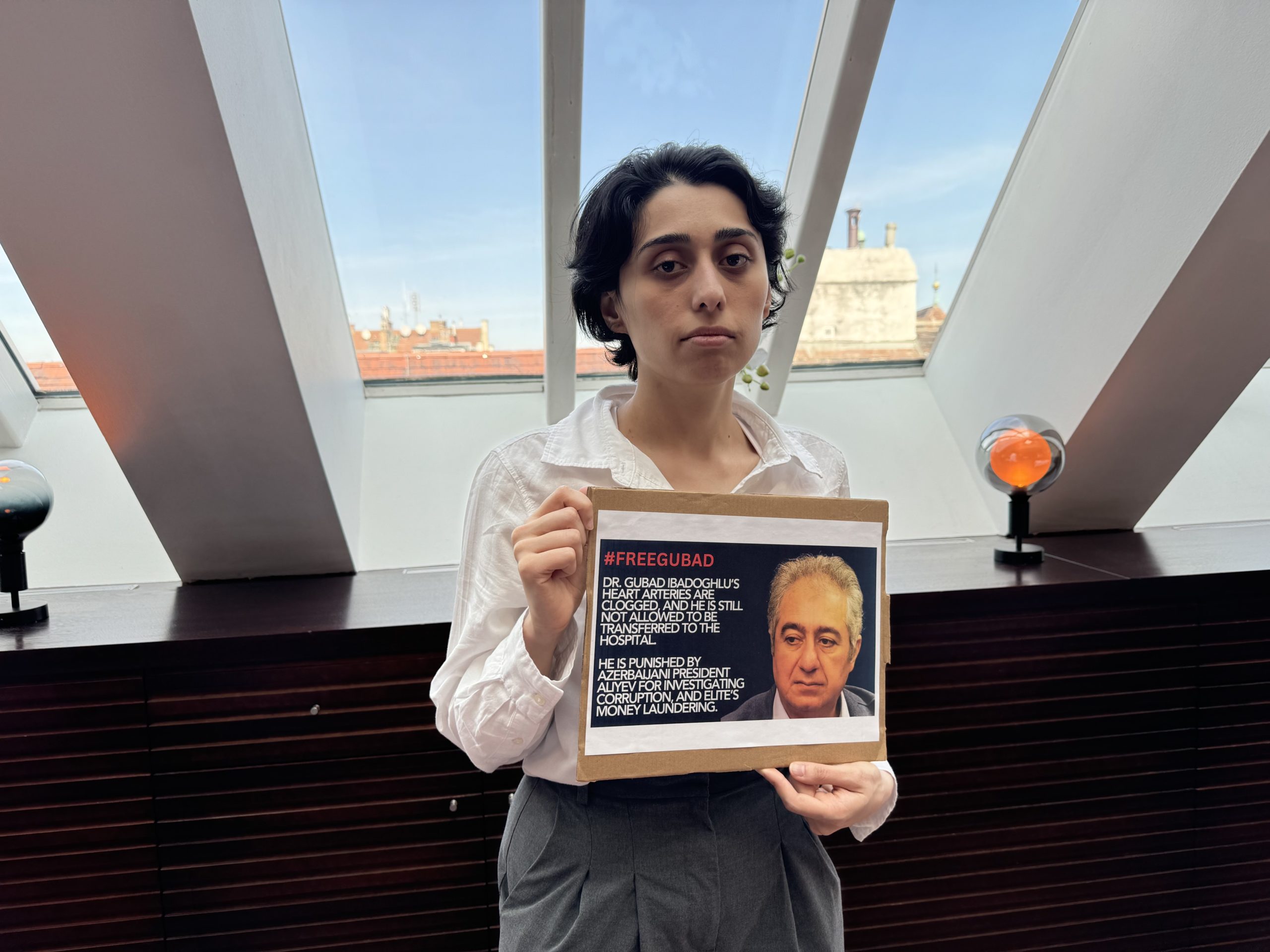
Something is going wrong with [Azerbaijan], with human rights. Everybody [human rights defenders] is basically in prison and if they’re not in prison then they’re going to be in prison one day – this is how it works right now.
Zhala Bayramova, human rights lawyer from Azerbaijan
Azerbaijani human rights lawyer Zhala Bayramova used the event to discuss the situation facing her father, political prisoner Gubad Ibadoghlu.
It was important for me today to show that we are living human beings, we are not numbers, there are families behind the political prisoners.
“So it was extremely important for me to show the delegates what I’m going through and what my father is going through. I think I was able to get all of their attention and pass the message. It was very important for me to create an ‘eye to eye’ kind of connection which you don’t usually have with panel discussion or other formats.”
“It was also great teamwork at this event with Anar [Mammadli, Azerbaijani human rights defender, and founder of the Election Monitoring and Democracy Studies Center (EMDS)], because he was once a political prisoner before and he was able to talk about his experience. Together we could show with a real human experience that now it’s getting worse [in Azerbaijan].”
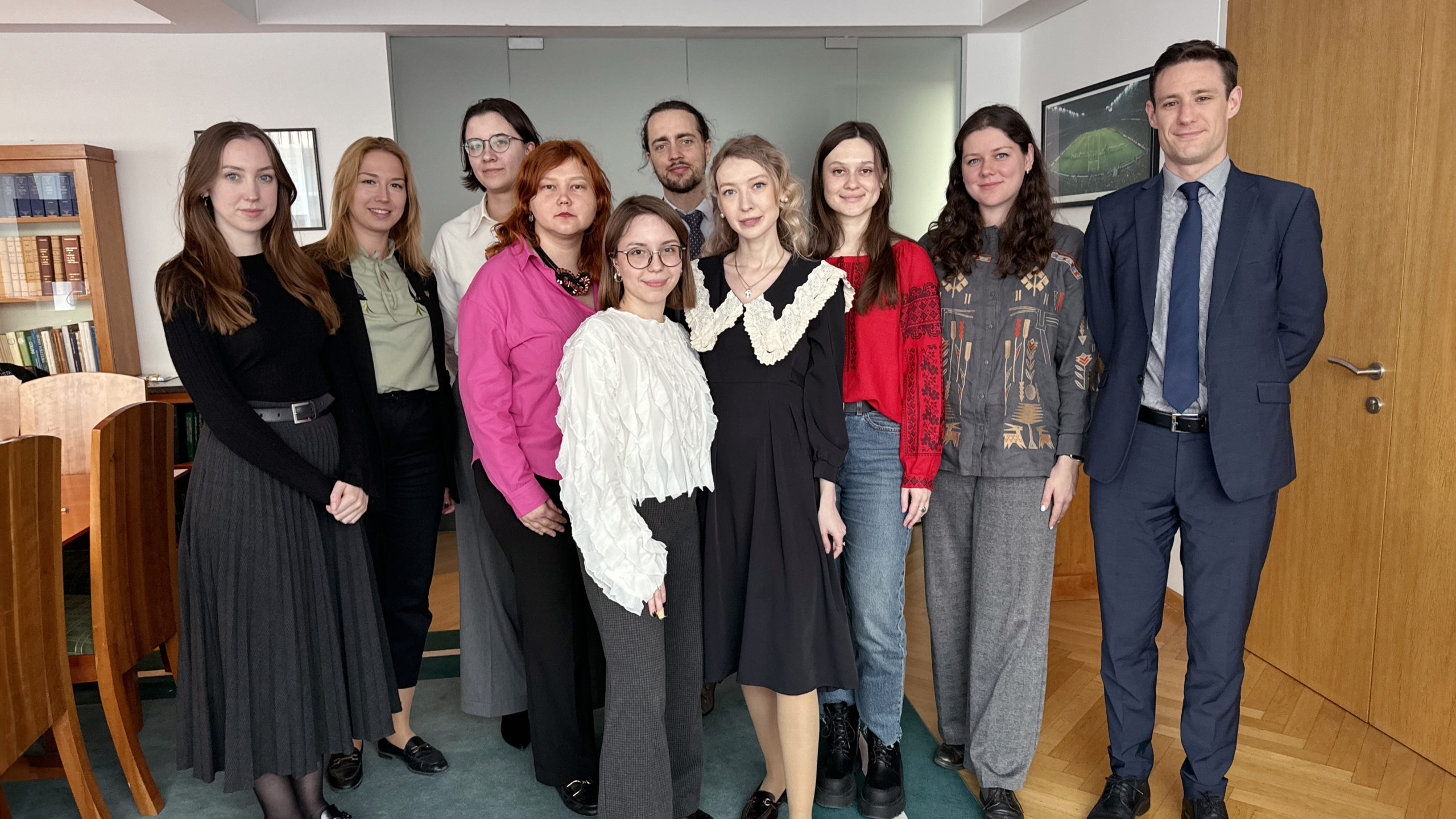
The event was very engaging for delegates and provided a good networking opportunity for civil society. It was also great to see Ukrainian civil society so well represented and covering a wide range of important topics.
Lisa Dolan, Attaché at the Permanent Mission of Ireland to the OSCE
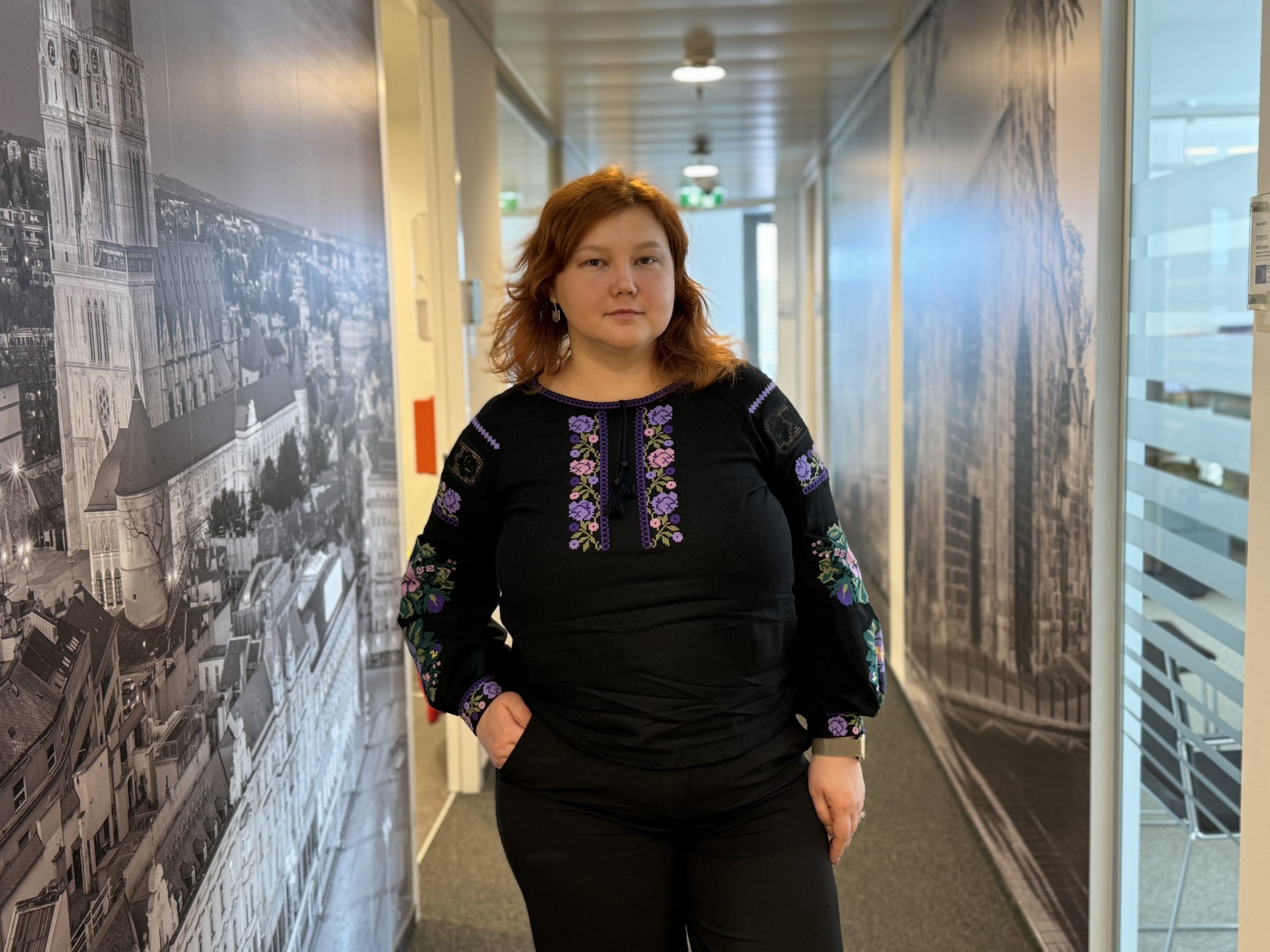
We were able to brief the delegates on the main updates related to the human rights violations but also raise the individual cases.
Nataliia Okhotnikova, Human Rights Centre ZMINA , Ukraine
Nataliia Okhotnikova from ZMINA was one of the advocates representing Ukraine. She shared that the event’s format was new to her but was enough to deliver the key advocacy points while keeping attention and interest.
“Unfortunately, it’s been over two years since the full-scale invasion of Ukraine and 10 years of war, and it’s not easy to keep [the issues] as high in the international agenda as they deserve to be, as, obviously, there are many events that also require attention.”
“It was a pleasure to meet the delegates who were also well prepared, they asked specific questions based on the knowledge ground. For instance, they asked for our opinion and view of specific potential human rights violations, and what are the trends related to Russia’s behaviour in the temporarily occupied territories [of Ukraine]. Following their questions we also discussed the Moscow Mechanism and what could be the lessons learnt for the future mechanisms, as well as how we see their potential for future action.”
Ukrainian HRDs also met with @IrelandOSCE, @EUOSCE, @RP_France_OSCE, @PLinOSCE, @CZMissionVienna & @Finland_OSCE and raised topics of persecution & abductions in the occupied territories, indoctrination & deportation of 🇺🇦 children by 🇷🇺, and lauch of the @OSCE Moscow Mechanism. pic.twitter.com/9ZWB6e7UHc
— ZMINA. Human Rights Centre (@zminaUkraine) March 20, 2024
During their advocacy trip, Ukrainian human rights defenders had additional meetings with the representatives of the EU Delegation to the OSCE and Permanent Missions of the Czech Republic, France, Finland, Ireland and Poland to the OSCE. Nataliia Okhotnikova was also invited to participate in the Human Dimension Committee Meeting on 19 March, 2024.
“Together with colleagues from Almenda, Crimean Human Rights Group and Regional Centre for Human Rights we selected the main advocacy topics to focus on in the allotted time.”
“We raised issues including the persecution of civil activists in the occupied territories, Ukrainian citizens held as political prisoners by Russia, looted cultural heritage from the occupied territories, and Ukrainian children deported by Russia. I also spoke about civilian hostages and issues related to this important topic. Delegations consulted with us on what they could practically do to assist the situation and whether in cases such as of civilian hostages, we believe that raising names of individuals could help their situations.”
“Depending on the participants of each round, we could tailor our presentation. For instance, in the case of presenting to the group with the representative from Spain – we could raise the case of Mariano García Calatayud, a Spanish citizen who was providing humanitarian assistance in Ukraine and who is now in [Russian] captivity.”
“This was also an opportunity to raise individual cases that require international attention. For example, we shared a letter requesting international support from the parents of Mariana Checheliuk, a 24-year-old investigator from Mariupol, who has spent two years in Russian captivity without any charges against her, has been tortured and is being denied necessary medical help.”
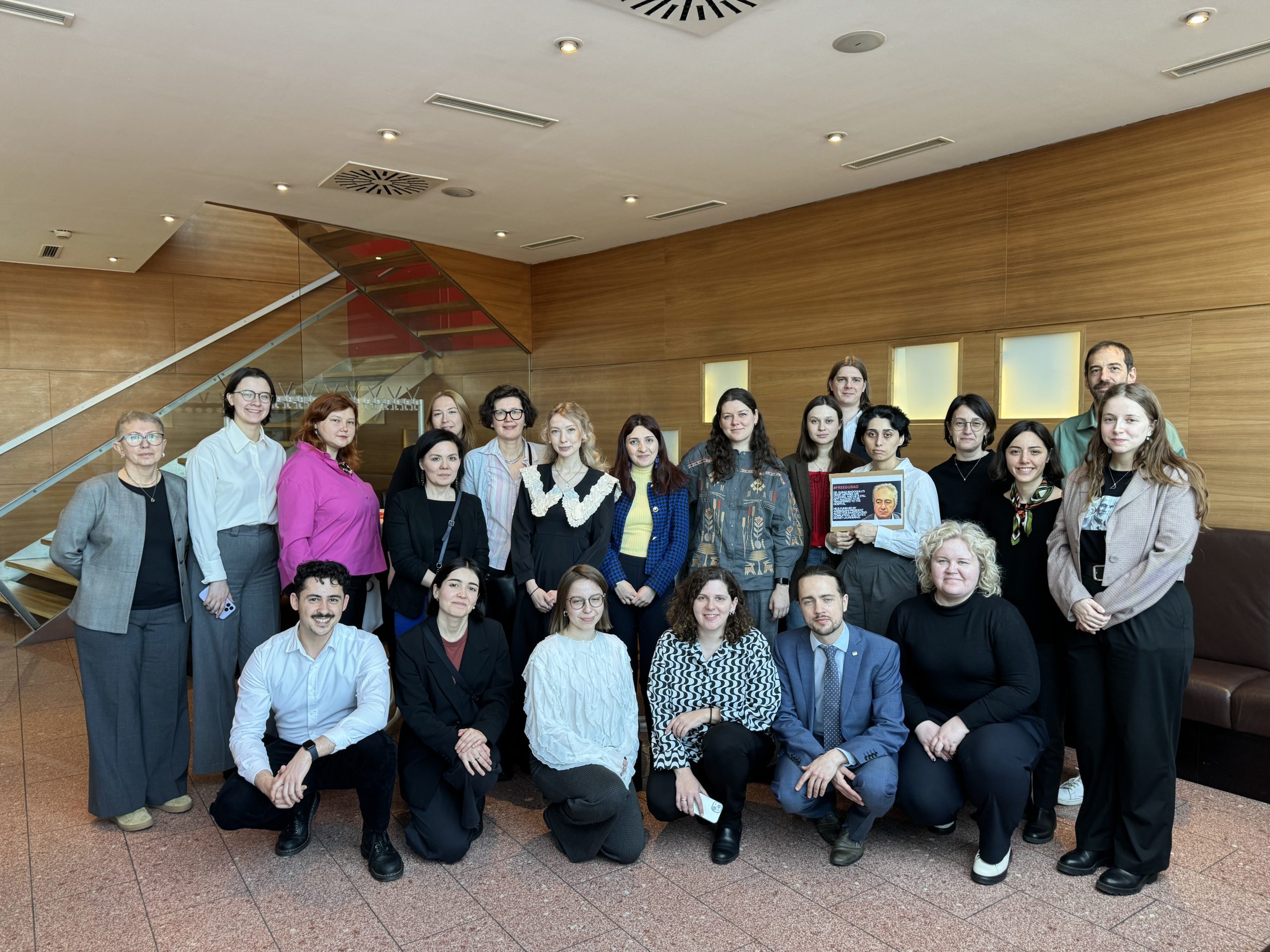


The Civil Society Human Dimension Event “Human Rights Tour of the OSCE Region” was organised by the Human Rights House Foundation and the Netherlands Helsinki Committee. The event was co-sponsored by the Permanent Delegations of Ireland, Norway, Sweden, Switzerland, and the United States to the OSCE and was co-funded by the European Union and the Ministry of Foreign Affairs of the Netherlands.
The advocacy trip of Ukrainian partners from member organisations of Human Rights House Crimea was organised within the “Emergency Support to civil society and media in response to the Ukraine war’ (ESU) project – a regional project that provides opportunities for emergency support for Ukrainian civil society and independent media in the wake of the full-scale Russian invasion. ESU is funded by the European Union and implemented by ERIM-led coalition of partners including Human Rights House Foundation.
Top photo: Civil society representatives from Georgia briefing the delegates during the event on 18 March, 2024.


